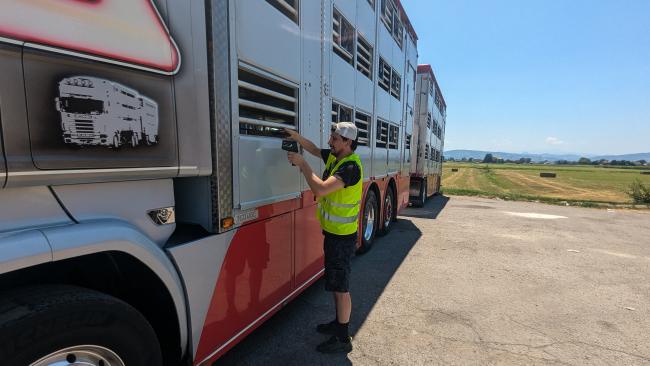
With help from investigators in the Directorate-General for Food and Veterinary Affairs, the Guarda Nacional Republicana (GNR) rolled out a large-scale inspection of Portugal’s live transport sector. Conducted across February, they identified 178 infringements, which included 18 failures to comply with the minimum conditions for transporting live animals, 9 for a lack of authorisation to act as a live animal transporter, and 4 for abandoning dead animal carcasses on farms. It also reported 3 crimes – 2 for the illegal possession of weapons, and 1 for clandestine slaughter.
The scale of the project and level of the response by the GNR were both noteworthy. 570 GNR officers were involved in the operation, with 283 vehicles inspected and 148 animals seized including bovines, goats and donkeys.
What does this inspection suggest about the role of EU policies in the live transport trade?
The GNR cited the European Commission’s Farm to Fork Strategy as a main driver for the project, which defines “implementing and improving the welfare of livestock animals” as a core objective. That the military body was motivated to take action is encouraging, as numerous investigations and media stories in recent years have emphasised a lack of enforcement of the existing rules for live transport as being a key concern in the sector. In some cases, breaches to EU law have reportedly even been ignored by the European Commission itself.
This situation also highlights the need for EU policies on live animal transport to go further. Rules for the wellbeing of animals should be strict, implementable and clear, leaving no room for interpretation about the level of care these sentient beings need. Strict measures on aspects like journey times, space allowances and the transportation of vulnerable animals should all be factored into the ongoing revision of the live transport laws, in-line with the latest science: as should a complete ban on exports to third countries, where the welfare of animals cannot be assured. Such robust measures would send a clear message to those working in the live transport industry, as well as to EU citizens generally, that animal welfare is a priority for the EU.
The live transport sector requires much better EU-wide rules that see the protection of animals being upheld and enforced. With the deadline for amendments to the transport proposal coming up fast on April 10, we’ll be watching very closely to see where policy-makers stand.









Discussion about this post